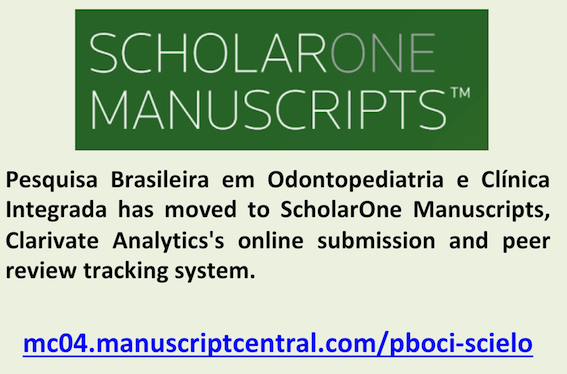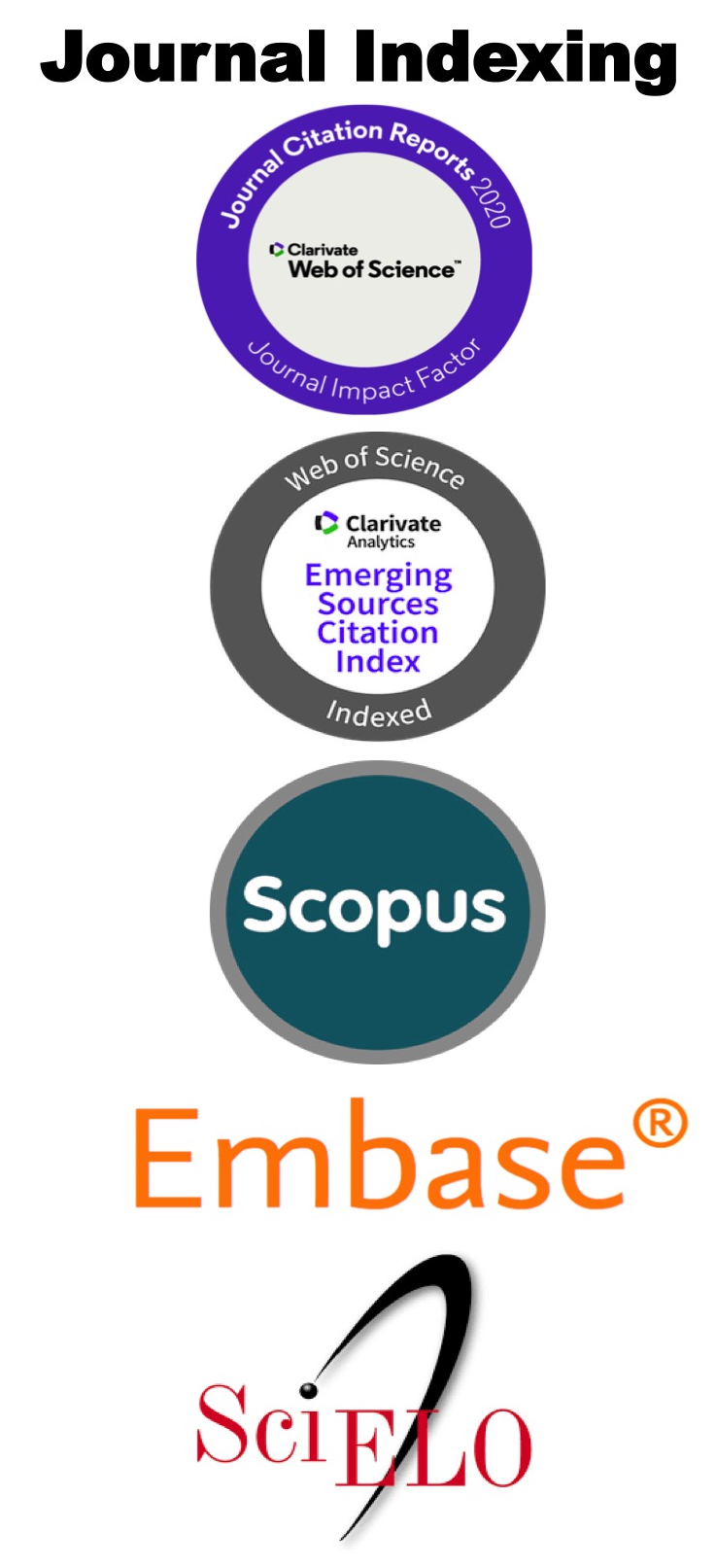Parental Personality Traits and Anxiety in Relation to the Acceptance of Behavior Management Techniques in Pediatric Dentistry
Keywords:
Behavior Control, Pediatric Dentistry, Dental Anxiety, Personality AssessmentAbstract
Objective: To determine whether parents’ personality characteristics and anxiety were associated with the acceptance of different Behavior Management Techniques (BMTs). Material and Methods: In this cross-sectional study, 285 parents of children referred for dental treatment were selected, and a video of BMTs was shown to them. Acceptance of BMTs was recorded using a Visual Analogue Scale (VAS). After obtaining demographic data, the Corah Dental Anxiety Assessment Scale (DAS) was used to assess parental dental anxiety. The PANAS (Positive Affect Negative Affect Scale) questionnaire was used to determine parents’ tendency toward positive or negative personality traits. Results: Positive personality traits of parents were not associated with the acceptance of different BMTs, whereas parents with more negative personality traits accepted the modeling (17.5±6.94) and positive reinforcement (16.2±5.85) more than other BMTs (p=0.01). Parents with higher levels of anxiety received general anesthesia more than other BMTs (17.5±5.74) (p=0.01). However, restraint techniques were unacceptable for parents with negative personality traits (23.5±6.2, 23.2±5.9) (p=0.00). Conclusion: Anxiety and negative personality correlate significantly with parental acceptance of behavior management techniques. This should be considered when selecting the optimum behavior management technique.
References
Jafarzadeh M, Kooshki F, Malekafzali B, Ahmadi S. Attitude of parents referred to the department of pediatric dentistry towards different behavioral management techniques used in pediatric dentistry. J Dent Sch 2014; 33(1):44-50. https://doi.org/10.22037/jds.v33i1.24748
Venkataraghavan K, Shah J, Kaur M, Trivedi K, Shah S, Virda M. Pro-activeness of parents in accepting behavior management techniques: A cross-sectional evaluative study. JCDR 2016; 10(7):ZC46-49. https://doi.org/10.7860/JCDR/2016/18378.8162
American Academy of Pediatric Dentistry. Behavior guidance for the pediatric dental patient. The reference manual of pediatric dentistry. Chicago, Ill.: AAPD; 2020.
Klingberg G, Freeman R, ten Berge M, Veerkamp J. EAPD Guidelines on Behaviour Management in Paediatric Dentistry. Amsterdam, 2007. 20 p.
Dhar V, Gosnell E, Jayaraman J, Law C, Majstorović M, Marghalani AA, et al. Nonpharmacological behavior guidance for the pediatric dental patient. Pediatr Dent 2023; 45(5):385-410.
Martinez Mier EA, Walsh CR, Farah CC, Vinson LA, Soto-Rojas AE, Jones JE. Acceptance of behavior guidance techniques used in pediatric dentistry by parents from diverse backgrounds. J Clin Pediatr 2019; 58(9):977-984. https://doi.org/10.1177/0009922819845897
Al Zoubi L, Schmoeckel J, Mustafa Ali M, Alkilzy M, Splieth CH. Parental acceptance of advanced behaviour management techniques in normal treatment and in emergency situations used in paediatric dentistry. Eur Arch Paediatr Dent 2019; 20(4):319-323. https://doi.org/10.1007/s40368-018-0408-y
Randall CL, Dhar V. Pediatric dentists' use of nonpharmacological behavior guidance techniques and experiences with parent / caregiver acceptance: A national survey. Pediatr Dent 2023; 45(5):418-424.
Candan M, Kutlu E, Yilmaz Karaman İG. Predictors of parental acceptance towards contemporary behavior management techniques used in pediatric dentistry: A preliminary study on turkish population. Children 2023; 10(10):1592. https://doi.org/10.3390/children10101592
Gizani S, Seremidi K, Katsouli K, Markouli A, Kloukos D. Basic behavioral management techniques in pediatric dentistry: A systematic review and meta-analysis. J Dent 2022; 126:104303. https://doi.org/10.1016/j.jdent.2022.104303
Kohli N, Hugar SM, Soneta SP, Saxena N, Kadam KS, Gokhale N. Psychological behavior management techniques to alleviate dental fear and anxiety in 4-14-year-old children in pediatric dentistry: A systematic review and meta-analysis. Dent Res J 2022; 19:47.
Aminabadi N-A, Pourkazemi M, Babapour J, Oskouei S-G. The impact of maternal emotional intelligence and parenting style on child anxiety and behavior in the dental setting. Med Oral Patol Oral Cir Bucal 2012; 17(6):e1089-1095. https://doi.org/10.4317/medoral.17839
Ibis S, Sari ME, Tomak L, Babadagi Z, Karabekiroglu KMZ. The effects of a maternal personality, children’s behavioral characteristics, and parenting styles on the dental anxiety of 3- to 6-year-old children. Makara J Health Res 2019; 23(3):132-137. https://doi.org/10.7454/msk.v23i3.1030
Boka V, Arapostathis K, Vretos N, Kotsanos N. Parental acceptance of behaviour-management techniques used in paediatric dentistry and its relation to parental dental anxiety and experience. Eur Arch Paediatr Dent 2014; 15(5):333-339. https://doi.org/10.1007/s40368-014-0119-y
Corah NL. Development of a dental anxiety scale. J Dent Res 1969; 48(4):596. https://doi.org/10.1177/00220345690480041801
Taqvi Kh. A study on the relationship between children's anxiety using the Verbal Skill Scale and CFSS DS with parental anxiety in a dental environment. PhD thesis – Tabriz University of Medical Sciences and Health Services, Tabriz; 2015.
Hasheminejad N, Hajizamani H, Tayebeh Malek M, Thomson WM. Personality characteristics and oral health-related quality of life in an Iranian adult population. Int J Dent 2021; 2021:6619123. https://doi.org/10.1155/2021/6619123
Likert R. A technique for the measurement of attitudes. Arch Sci Psychol 1932; 140:1-55.
Gift AG. Visual analogue scales: Measurement of subjective phenomena. Nurs Res 1989; 38(5):286-288. https://doi.org/10.1097/00006199-198909000-00006
Karukivi M, Suominen A, Scheinin NM, Li R, Ahrnberg H, Rantavuori K, et al. Gender-specific associations between the dimensions of alexithymia personality trait and dental anxiety in parents of the FinnBrain Birth Cohort Study. Eur J Oral Sci 2022; 130(1):e12830. https://doi.org/10.1111/eos.12830
Faghihian R, Jafarzadeh M, Esmaeili M, Malek Mohamamdi N, Nikbakht MH. Relationship between anger expression in mothers and acceptance of behavior management techniques in pediatric dentistry. J Dent 2023; 24(1 Suppl):138-145. https://doi.org/10.30476/dentjods.2022.92626.1665
Guinot F, Virolés M, Lluch C, Costa AL, Veloso A. Spanish and Portuguese parental acceptance of behavior management techniques in pediatric dentistry. J Clin Pediatr Dent 2021; 45(4):247-252. https://doi.org/10.17796/1053-4625-45.4.5
Nagaveni NB, Muzammil K, Poornima TP. Evaluation of children’s perception of non-pharmacological behaviour management techniques-An innovative study. Int J Pedo Rehab 2023; 8(1):36-43. https://doi.org/10.56501/intjpedorehab.v8i1.772
Patel C, Patel M, Disha M, Banshri V, Patel F, Joshi KJJoPSP. Parental attitude and acceptance of behavior management techniques used in pediatric dentistry as reported by pediatric dental specialists: A cross sectional survey. JPSP 2022; 6(7):954-959.
Mirmoeini Y, Sarlak H, Normohammadi S, Nakhostin A, Salimi Z. A comparative study on the efects of different informing methods on parental acceptance of pediatric behavior management techniques. J Arak Uni Med Sci 2020; 23(2):210-221. https://doi.org/10.32598/JAMS.23.2.6015.1
Seangpadsa K, Smutkeeree A, Leelataweewud P. Parental acceptance of behavior management techniques for preschool children in dental practice: Revisited. J Indian Soc Pedod Prev Dent 2020; 38(3):274-279. https://doi.org/10.4103/JISPPD.JISPPD_349_20
Mukhopadhyay M, Mukherjee CG, Sharma S, Kumar A, Singh S. Influence of maternal past dental experience and child’s temperament on behavior management problems in dental office. Int J Sci Stud 2016; 4(1):1-5. https://doi.org/10.17354/ijss/2016/177
Downloads
Published
How to Cite
Issue
Section
License
Copyright (c) 2024 Pesquisa Brasileira em Odontopediatria e Clínica Integrada

This work is licensed under a Creative Commons Attribution-NonCommercial 4.0 International License.



